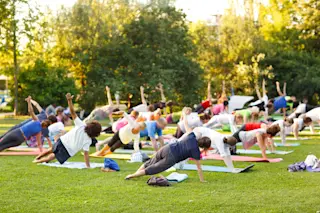While it may have felt freeing for some people to forego their usually hectic schedules at the start of the COVID-19 pandemic, the lockdowns and stay-at-home orders may have contributed to the phenomenon of "coronasomnia," or sleep problems — particularly insomnia.
One possible explanation: Prolonged lockdowns are associated with insufficient sunlight, or limited exposure to any natural light. Although coronasomnia was often attributed to stress and anxiety, the disruption of light-based cues due to home confinement also played a role in shifting people’s circadian rhythms. UCLA’s Sleep Disorders Center reported a 20 to 30 percent rise in complaints of insomnia in the early stretch of the pandemic, aligning with data from China and France. Insomnia can in turn impair productivity, mood and physical health. But getting enough natural light can improve both sleep quality and a wide range of health outcomes.
For one, sunlight is important in regulating mood. A ...














